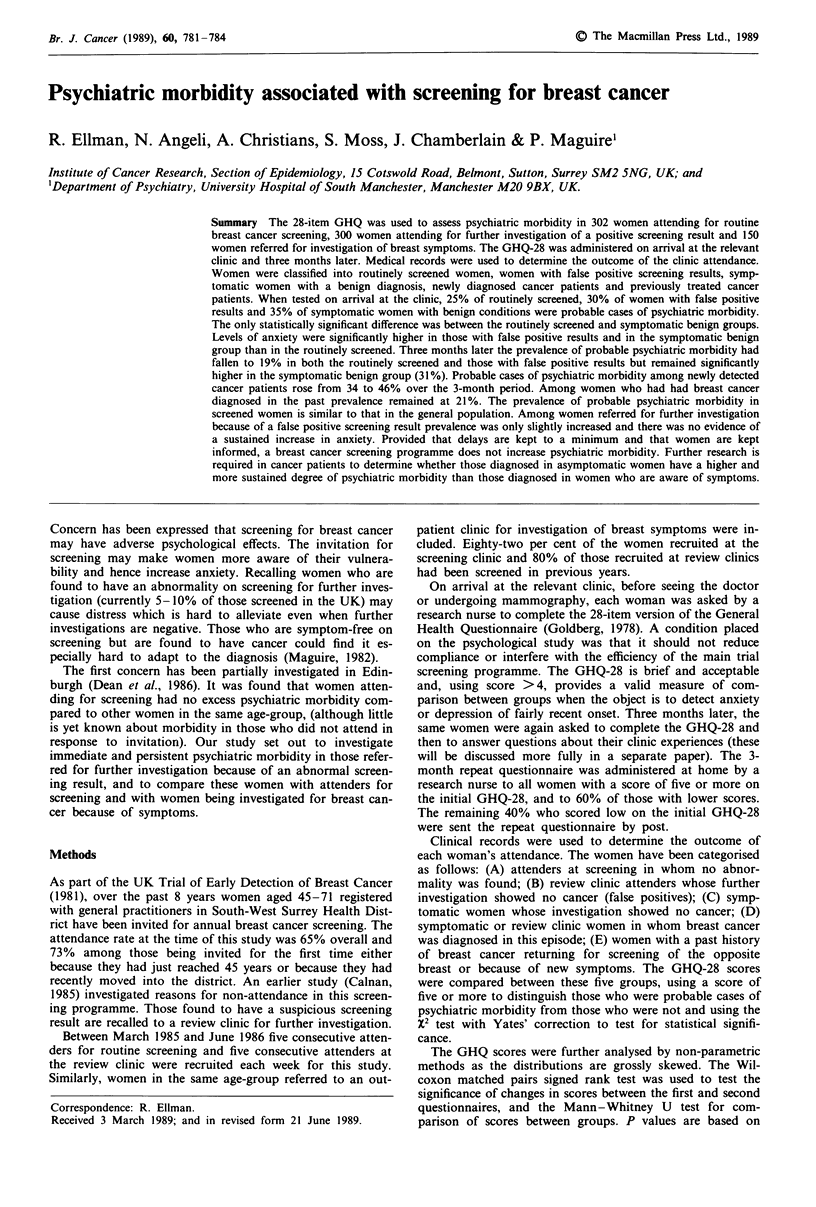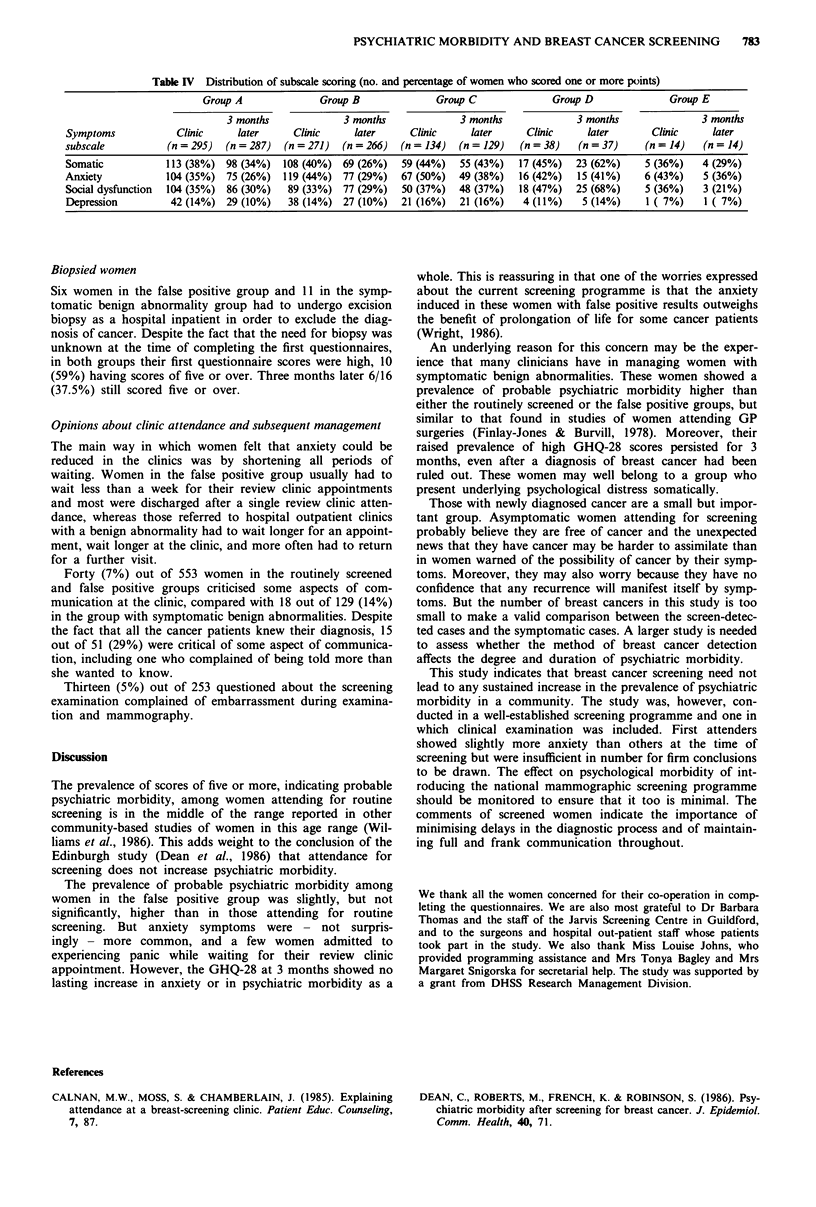Abstract
The 28-item GHQ was used to assess psychiatric morbidity in 302 women attending for routine breast cancer screening, 300 women attending for further investigation of a positive screening result and 150 women referred for investigation of breast symptoms. The GHQ-28 was administered on arrival at the relevant clinic and three months later. Medical records were used to determine the outcome of the clinic attendance. Women were classified into routinely screened women, women with false positive screening results, symptomatic women with a benign diagnosis, newly diagnosed cancer patients and previously treated cancer patients. When tested on arrival at the clinic, 25% of routinely screened, 30% of women with false positive results and 35% of symptomatic women with benign conditions were probable cases of psychiatric morbidity. The only statistically significant difference was between the routinely screened and symptomatic benign groups. Levels of anxiety were significantly higher in those with false positive results and in the symptomatic benign group than in the routinely screened. Three months later the prevalence of probable psychiatric morbidity had fallen to 19% in both the routinely screened and those with false positive results but remained significantly higher in the symptomatic benign group (31%). Probable cases of psychiatric morbidity among newly detected cancer patients rose from 34 to 46% over the 3-month period. Among women who had had breast cancer diagnosed in the past prevalence remained at 21%. The prevalence of probable psychiatric morbidity in screened women is similar to that in the general population. Among women referred for further investigation because of a false positive screening result prevalence was only slightly increased and there was no evidence of a sustained increase in anxiety. Provided that delays are kept to a minimum and that women are kept informed, a breast cancer screening programme does not increase psychiatric morbidity. Further research is required in cancer patients to determine whether those diagnosed in asymptomatic women have a higher and more sustained degree of psychiatric morbidity than those diagnosed in women who are aware of symptoms.
Full text
PDF



Selected References
These references are in PubMed. This may not be the complete list of references from this article.
- Calnan M. W., Moss S., Chamberlain J. Explaining attendance at a breast-screening clinic. Patient Educ Couns. 1985 Mar;7(1):87–96. doi: 10.1016/0738-3991(85)90022-9. [DOI] [PubMed] [Google Scholar]
- Dean C., Roberts M. M., French K., Robinson S. Psychiatric morbidity after screening for breast cancer. J Epidemiol Community Health. 1986 Mar;40(1):71–75. doi: 10.1136/jech.40.1.71. [DOI] [PMC free article] [PubMed] [Google Scholar]
- Finlay-Jones R. A., Burvill P. W. Contrasting demographic patterns of minor psychiatric morbidity in general practice and the community. Psychol Med. 1978 Aug;8(3):455–466. doi: 10.1017/s0033291700016135. [DOI] [PubMed] [Google Scholar]
- Wright C. J. Breast cancer screening: a different look at the evidence. Surgery. 1986 Oct;100(4):594–598. [PubMed] [Google Scholar]


